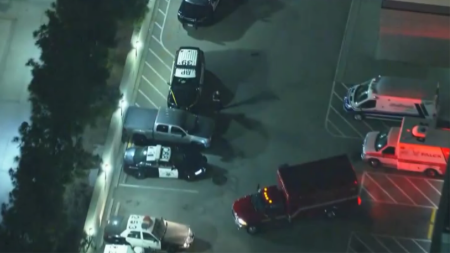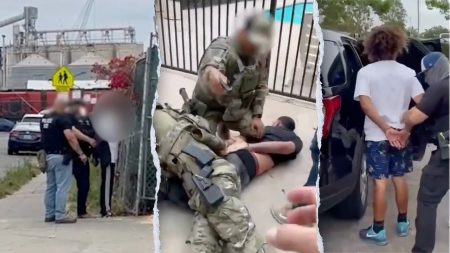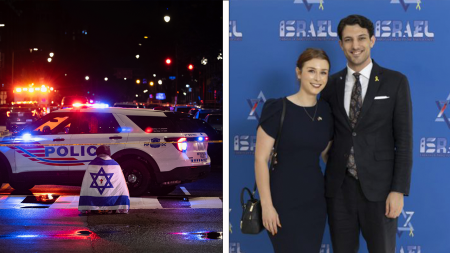Eiber Gabriel Sira-Vargas, a 29-year-old man, has been charged with capital murder and aggravated kidnapping in Texas, linked to his suspected involvement with the Venezuelan criminal organization Tren de Aragua. He is currently detained at the Bexar County Jail, where his bail is set at $2 million. The charges stemmed from the tragic incident involving 18-year-old Alexis Jose Vegas, whose body was discovered on the side of a highway in San Antonio last July, showing signs of multiple gunshot wounds. Prior to this incident, Sira-Vargas had been detained by U.S. Immigration and Customs Enforcement, indicating a complex history that suggests deeper criminal connections. Investigations revealed that Sira-Vargas’s potential weapons trafficking activities were intertwined with the violent reputation of Tren de Aragua, a gang notorious for its involvement in multiple criminal acts across the globe.
The developments leading to Sira-Vargas’s arrest began when he was identified during the investigation of an alleged robbery. Eyewitness testimonies led law enforcement to a report wherein an unnamed individual recounted a horrifying encounter involving Sira-Vargas and other armed suspects. On July 1, this individual was present at an apartment with Vegas when three armed men stormed in, zip-tying both victims before transferring them to a secluded area along U.S. 281. As the suspects confronted them, Sira-Vargas, alongside another gunman, opened fire on both Vegas and the witness. In a desperate bid for survival, the witness was injured but managed to feign death until the gunmen retreated, potentially saving his life and providing crucial evidence for the investigation.
Tren de Aragua has gained notoriety for its involvement in serious crimes, including murders, extortion, sexual assaults, and kidnappings. The gang’s origins trace back to Tocoron prison in Venezuela, where it was formed between 2013 and 2015. This violent organization has reportedly expanded its operations internationally, making its presence felt in various regions, including the United States. The gang’s modus operandi involves a range of criminal activities that extend beyond simple street violence to systematic and organized crime. Their established pattern of brutality has drawn the attention of law enforcement, leading to increased surveillance and interventions aimed at dismantling their networks.
In recent years, Tren de Aragua has begun to operate within Texas, with Texas Governor Greg Abbott noting their activities in the state since at least 2021, specifically highlighting cases of human trafficking connected to gang members. In response to the growing threat, Gov. Abbott recently designated Tren de Aragua as a “foreign terrorist organization,” illustrating the severity with which the state views the gang’s operations. This designation serves as a formal recognition of the threat Tren de Aragua poses not only to local communities but also to the broader social fabric of Texas. In tandem with this designation, the governor initiated a statewide operation aimed at intensifying efforts against the gang’s influence, showcasing a proactive stance from state officials in addressing the dangerous activity.
The increased focus on Tren de Aragua highlights a broader concern regarding the infiltration of violent organized crime groups into U.S. cities, particularly those with close geographical and cultural ties to Latin America. The extensive reach of such organizations, as seen in the case of Sira-Vargas, raises questions about immigration, law enforcement capabilities, and public safety. The notion that a gang born from Venezuela’s chaos could manifest in Texas reflects deeper issues regarding international crime and the migration of violence across borders. This situation underscores the pressing need for collaborative efforts between federal, state, and local authorities to combat both the immediate dangers posed by gangs like Tren de Aragua and the systemic issues that allow their proliferation.
As authorities continue their investigation into the serious charges lodged against Sira-Vargas and their implications, public awareness surrounding the operations of Tren de Aragua remains critical. The case illustrates not just individual criminality but also the pervasive threat posed by organized crime in communities across Texas and beyond. Ensuring community safety requires not only tactical law enforcement responses but also preventative measures that address underlying social and economic factors contributing to gang activities. The alarming rise of gangs with international ties signifies that collaborations among various jurisdictions and international law enforcement bodies might be necessary to effectively mitigate the threats posed by such criminal enterprises, ensuring they do not continue to expand unchecked.










